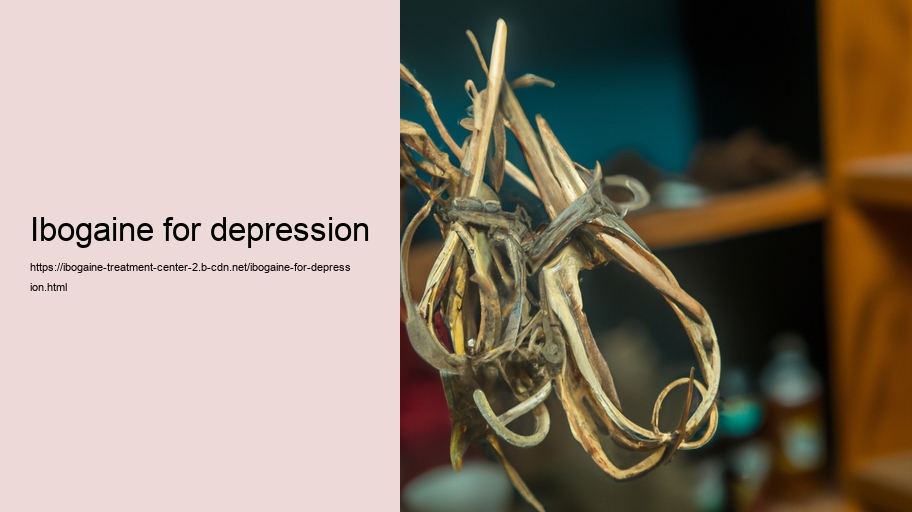Title: Exploring the Potential of Ibogaine in Treating Depression
Introduction:
Depression is a pervasive mental health disorder that affects millions of individuals globally, often leading to debilitating symptoms and impaired quality of life. Conventional treatments like antidepressants and psychotherapy offer relief to many, yet some patients continue to struggle with persistent symptoms. In the quest for alternative therapeutic options, researchers have turned their attention to ibogaine—a naturally occurring psychoactive substance derived from the African shrub Tabernanthe iboga. This essay delves into the potential use of ibogaine as a novel approach for depression treatment, examining its mechanisms, benefits, risks, and current state of research.
Body:
Understanding Ibogaine:
Ibogaine is a complex indole alkaloid known for its psychedelic properties and has been traditionally used in sacred rituals by indigenous populations in West Africa. Its unique pharmacological profile includes interaction with multiple neurotransmitter systems such as serotonin, dopamine, and opioid receptors which play key roles in mood regulation.
Mechanism of Action:
The hypothesized therapeutic effects of ibogaine on depression are multifaceted. It is thought to reset brain chemistry through its action on neuroreceptors associated with mood disorders—potentially providing rapid symptom alleviation. Furthermore, ibogane's ability to foster introspection may allow individuals to process emotional traumas or psychological issues contributing to their depressive states.
Clinical Evidence:
Despite anecdotal reports extolling ibogaine's efficacy in treating depression and addiction-related issues, scientific evidence remains limited due to legal constraints and insufficient clinical trials. Early-stage studies suggest that single doses can lead to immediate improvements in mood; however, there is an urgent need for well-designed research protocols to fully understand its therapeutic potential and safety profile.
Safety Concerns:
Ibogaine administration is not without risks—it can induce intense hallucinations and carries cardiovascular risks such as arrhythmias or even death when taken at high doses or without medical supervision. Therefore, any consideration of ibogaine for depression must prioritize patient safety through controlled settings under expert guidance.
Legal Status:
Currently, ibogaine is classified as a Schedule I substance in the United States—indicating a high potential for abuse with no accepted medical use—although it remains unregulated or used medicinally in other parts of the world. This categorization severely limits access for both patients seeking alternative treatments and researchers working toward establishing credible evidence regarding its medicinal value.
Conclusion:
The prospect of using ibogaine for treating depression holds intrigue due primarily to anecdotal successes where traditional methods have failed. However, significant challenges persist—including legal barriers preventing comprehensive research into its effectiveness and necessary precautions due to potential adverse effects.
In conclusion, while preliminary findings provide hope that ibogaine may one day become an invaluable tool in combating treatment-resistant depression if proven safe and effective through rigorous clinical evaluation—the path forward requires careful navigation between promise and precautionary principle.
Moving forward calls for collaboration among scientists, policymakers, healthcare providers—and most importantly—patients themselves in order ultimately unlocking any therapeutic benefits this enigmatic compound might hold against the backdrop of mental health care needs worldwide.
